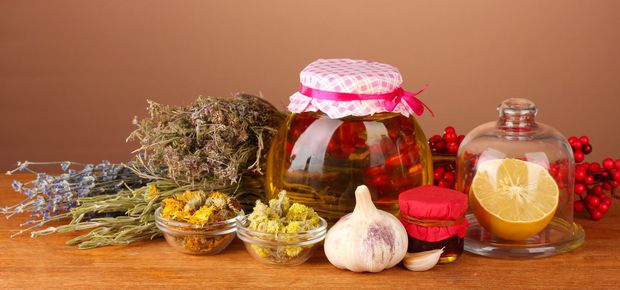
What is Polycystic Ovary Syndrome?
Polycystic Ovary Syndrome (PCOS) is a common hormonal disorder that affects up to 12% of Australian women. It can develop in women during teenage and childbearing years, causing a hormonal imbalance that triggers cysts to form over the ovaries.
Common signs and symptoms of PCOS include:
• Irregular, infrequent or absent menstrual periods
• Obesity and weight maintenance problems
• Excessive hair growth, particularly on the face, chest, lower abdomen and thighs
Modern medicine is yet to reveal the root cause of PCOS, consequently limiting the treatments available in the management of PCOS symptoms. PCOS itself has been associated with fluctuating insulin and blood sugar levels that in turn affect the regulation of the ovaries and menstruation.
PCOS and Herbal medicine
Herbal medicine employs the use of medicinal plants and herbs to treat the underlying cause of PCOS in a patient, to relieve its symptoms, help prevent further disease and to promote the body to heal itself.
When traditional PCOS medicines are too harsh, invasive or not enough to relieve symptoms, women may like to consider herbal medicine as a natural alternative. Herbs may be used for extended periods of time unlike pharmaceuticals, which are rarely indicated, for long-term use.
How Can Herbal Medicine Assist with PCOS?
Herbal medicine aims to treat PCOS by enabling the body to readapt excess hormone levels in the body to more normal levels that allow a normal menstrual cycle to take place.
Herbs for PCOS
Herbs that are essential in the management of PCOS include:
- Adrenal tonics that reduce and balance adrenal response; these include herbs such as Rehmannia, Rhodiola, Siberian Ginseng and Withania.
- Black cohosh root – consists of hormonally active compounds that suppress luteinising hormone secretion with extended use.
- Blue Cohosh - acts as a pelvic inflammatory, and as a uterine and ovarian tonic.
- Chaste tree – stimulates and normalizes the pituitary gland responsible for the release of Luteinising hormone; - stimulates progesterone release which lengthens menstruation; enhances fertility by reducing androgen and oestrogen levels responsible for anovulation (no ovulation) when in excess.
- Dandelion root, which is a great liver detoxifier as well as bileflow stimulant, bilary excretion of conjugated hormones stimulant, and also increases the production of SHBGs (sex hormone binding globulins) that reduce the effects of testosterone in the body by ‘moping’ it up.
- Gynaema – assists with weight management by regulating insulin levels thus controlling carbohydrate and sugar cravings.
- Hops – relieves the stress and nervous tension associated with PCOS.
- Red clover – Purifies the blood as well as contains phyto-oesterogens that combat symptoms of PCOS.
- Licorice – improves hormonal balance and reduces androgen levels, especially when used in conjunction with Peony.
- Milk thistle, rosemary, Bupleurum, barberry and Schizandra are excellent liver herbs, aiding in the removal of excess oestrogen.
- Peony- has been shown to lower progesterone levels, reduce elevated androgens (testosterone) and regulate oestrogen and prolactin levels.
- Tribulus – assists in the restoration of a regular menstrual and ovulation cycle.
- Saw Palmetto – may be used to reduce and regulate excess testosterone in the body.
- St John's Wort – Useful in treating symptoms of depression linked to the hormonal imbalances of PCOS.
Additional Information
If you are interested in finding out more about how herbal medicine may help with PCOS, speak to a herbalist or Chinese medical practitioner in your local area.
Find out about other effective natural PCOS treatments.
Originally published on Apr 30, 2010







